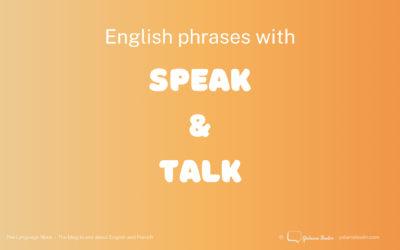To understand a new language, we also need to understand the culture of the country where that language is spoken. We agree on that. The culture of a country encompasses numerous concepts, elements and references. Humour is one of those.
But when you learn a language, humour is probably one of the most difficult aspects to grasp et use successfully. It is understandable because humour requires a shared understanding of the facts or notions that you want to communicate.
However, some word plays –or puns– are easier to get, even for those who are learning the language, because all you need is understand the meaning of the words that are used in the word play, as with this English pun:
The past, the present and the future walked into a bar… it was tense
The first part of this word play is easy to grasp actually because there’s no hidden or double meaning in it. When you hear or read “The past, the present and the future walked into a bar”, what happens is that you immediately personify the tenses and imagine them as three men walking into a bar.
To understand the punch line though, you need to understand the double meaning of the word tense. Indeed, tense can be the noun to refer to the form of a verb that shows which time something happens (past, present or future), but tense is also an adjective to describe an atmosphere. When the atmosphere is tense, it means it makes you nervous or worried. So this pun is playing on the double meaning of the word tense.
Got it? Wonderful! Now learn it, practice saying it and next time you have the opportunity to speak to someone in English, tell them this wordplay. It’ll be fun! 🙂





0 Comments